History of Modern Medicine
This essay will cover the historiographical elements of Western medicine. From its’ establishment as a discipline in the world of the ancient Greeks, to the way medicine and its’ practices are viewed in modern times; This essay will also briefly touch on the practices that existed long before the working definition of medicine came to be, through the practices of Prehistoric Medicine in order to give a more translucent understanding of how medical history and application has evolved to today’s standards. This essay will evaluate how we have preserved some practices of medicine from the times of the Greeks, while evolving our understanding of and application of medical practices. It will explore who were/are the dominant figures and contributors to the historiography of Western medicine, and inherently, what are their significance? Finally, this essay will focus on how the ways in which we talk about the history of Western medicine changed, and answer the question of what has having the knowledge that we have acquired about medicine helped shape our society?
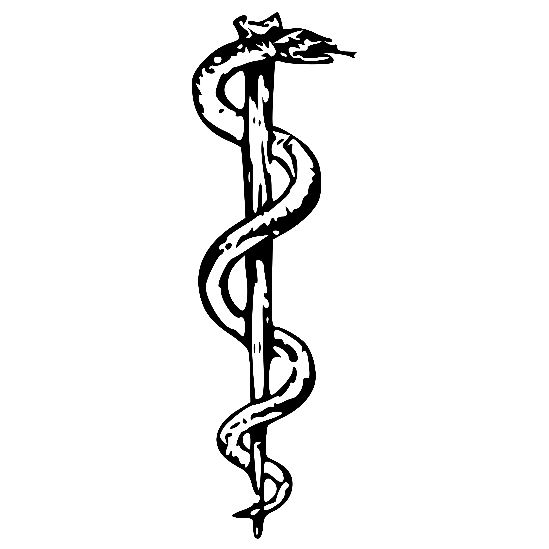
Western Medicine and its’ Place in History
Every year, thousands of new young Doctors graduate from medical school with the hopes of touching and changing lives every day in their respective fields. Although they have chosen different specialized fields of medicine, they all have the same aspirations to help and heal the sick. With each new class of doctors, there is also that time honored tradition of taking the Hippocratic Oath, one of the oldest binding documents in history. But what exactly is the Hippocratic Oath and why is it relevant to medical practices today? The short answer to that is; Western medicine has its’ origins within Ancient Greek practices and the Hippocratic Oath is attributed to the ‘Father of Modern Medicine,’ Hippocrates. However, the view that the ancient Greek’s had of medicine is very different in application from the views we have of medicine today and in order to understand how we got from Ancient Greek medical practices to the medical advancements and practices in the modern era, we must take a look at the origins of modern Westernized medicine and ask ourselves the most important question of all, why does it matter? As long as humans have inhabited the earth, medicine and the practice of it in various civilizations has also existed, even long before the working definition of Medicine as we know it today has existed or was written down. In fact it was author M.C. Lemon in his Philosophy of History book that wrote about humans and their relationship to the natural world and way that we in which we talk about medicine when he writes, “Geographical differences pertain, but within a given region, modern peoples face the same natural structures and forces their ancient predecessors had to deal with.” (Lemon, pg.97). Imbedded within our animalistic nature, is our wanting to understand the world around us and how it interacts and affect us. When we get hurt, we want to figure out how or why. When we get sick, we want to know what got us sick. This relationship has always existed and always will because it is a part of our species to be curios. It is this kind of relationship however, where we can trace some of the origins of medicine, or at least the understandings we have of how the body works.
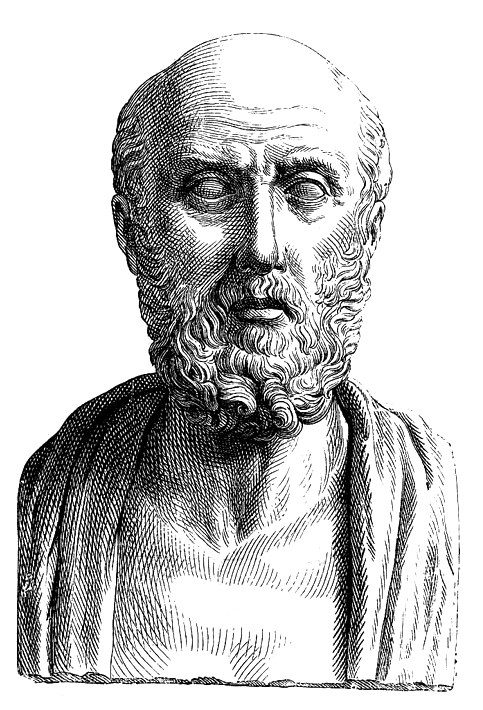
Prehistoric Medicine: Magic and Healing
As long as humans have inhabited the earth, medicine and the practice of it in various civilizations has also existed, even long before the working definition of Medicine as we know it today has existed or was written down. In fact it was author M.C. Lemon in his Philosophy of History book that wrote about humans and their relationship to the natural world and way that we in which we talk about medicine when he writes, “Geographical differences pertain, but within a given region, modern peoples face the same natural structures and forces their ancient predecessors had to deal with.” (Lemon, pg.97). Imbedded within our animalistic nature, is our wanting to understand the world around us and how it interacts and affect us. When we get hurt, we want to figure out how or why. When we get sick, we want to know what got us sick. This relationship has always existed and always will because it is a part of our species to be curios. It is this kind of relationship however, where we can trace some of the origins of medicine, or at least the understandings we have of how the body works. Prehistoric Medicine refers to the medical practices executed before the invention of writing as well as the documentation of medical history began. Because there are no written sources for this period, and because many civilizations evolved at different points in time to using written sources, according to online medical source, Medical News Today, prehistoric medicine “…covers a vast period and varies, according to regions of the world and cultures”(Brazier, p.1). In other words, this type of history encompasses a wide range of time periods and dates. Furthermore, because there are no written sources to turn to, is a discipline very reliant on artifacts, human remains, and anthropology. The tools that scholars have used to study the origins of medicine trough these ancient practices have given them evidence that “…people in prehistoric times would have believed in a combination of natural and supernatural causes and treatments for conditions and diseases” (Brazier, p.3). Through the study of human remains, many scholars have been able to deduce that practices such as Trepanning, which involves treating common medical conditions such as mental disorders, migraines or epileptic seizures by drilling holes in the patients’ head, (source: Medical News today) were common practice and according to the same source medical source, “ There is evidence that humans have been boring holes into people’s heads since Neolithic times to try to cure diseases or free the victim of demons or evil spirits” (Brazier, p.39).But what does the practice of Trepanning and prehistoric medicine have anything to do with Medical historiography you may be asking? Although the narrative provided is historical in context, and despite how these practices are viewed and talked about today, they proved to be a tipping off point as well as laid the foundations for the practices of medicine and the recording of it before the term or historiographical concept of it was even applied.
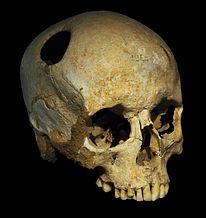
The Ancient Egyptians and Medicine
Although the practices of the Ancient Egyptians were advanced by today’s standards in the sense that they understood the concept of the human body and cleanliness, at the same time, they held onto some of the prehistoric views of medicine, which including the idea that illnesses were sometimes tied to the sin of a person and bad spirits. This is best described by author and contributor to the Ancient History Encyclopedia Joshua J. Mark, when referring to the Egyptian civilization medicine, “Even so, for a civilization which regularly dissected the dead for embalming, doctors had little understanding of how most of the internal organs worked and blamed disease on supernatural forces.” (Mark, p. 6). Despite their continued ties to the prehistorical view of medicine, specifically through the supernatural world and its relation to disease and medicine; one of the Egyptian civilization’s greatest contributions to the modern practices of western medicine is their Papyrus Scrolls, which they would use to write down their spells and incantations for treatment and thus, became the first examples of written medical sources of medicine. The importance of these scrolls was not however limited in importance because of the contributions it made to the historiography of medicine, although that is an important aspect to bear in mind. Rather, these papyrus scrolls represented a link of the Ancient Egyptians to the Greeks. In Jacques Jouanna’s book entitled Greek Medicine: from Hippocrates to Galen, in which he talks in dept about the origins of Greek medicine and its’ written history; the author draws a contrast of the Egyptians to the Greeks when he writes, “As and when these medical texts from Pharaonic Egypt were published, scholars began to raise the question about the relationship that might have existed between this Egyptian medicine (whose most prestigious examples date from about 1550 BC) and Hippocrates the first representative of Greek medicine, which manifested itself more than ten centuries later. The comparison have also been able to draw following the discoveries of the Papyri” (Jounna, pg. 4-5). What the author is trying to get at, is that although there is not a very distinct correlation between the Egyptians and the Greeks in regard to the way in which medicine is recorded and practiced; the Greeks took much of their influences and further evolved those concepts to match their own ways of going about recording and practicing medicine. This would in turn, give rise to the strong correlation between modern medicine and the Greeks. A civilization that has been labeled as the founders of modern western medicine and without whom, our medical practices and applications would be vastly different had those histories not been recorded.
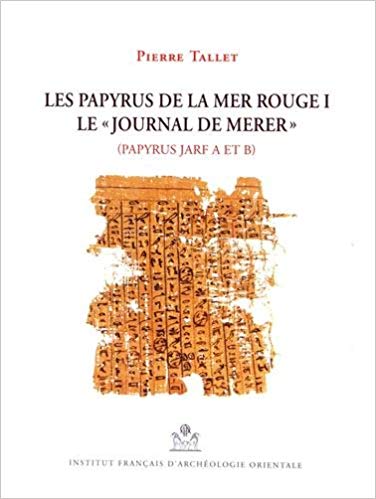
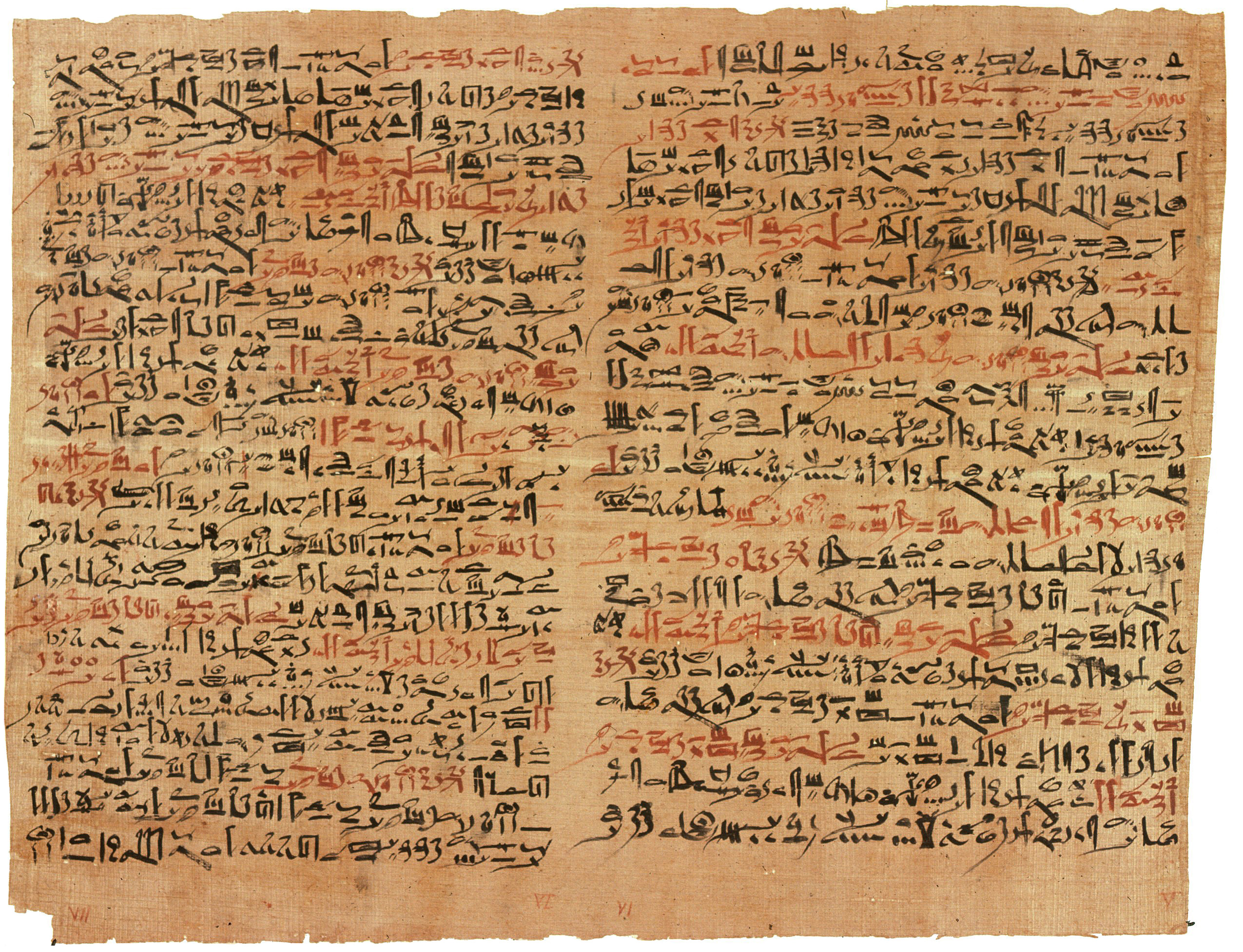
Hippocrates and The Ancient Greeks
Much of what we know today about modern medicine is attributed to the Greeks and famous figures such as Greek physicians Hippocrates,(whom is considered by many to be the founding father of medicine and rational science,) and Greek physician Galen. Aside from the prominent figures that are associated with medicine and the Greeks, however, is the approach in medicine developed in the time of Hippocrates known as Hippocratic Medicine. Through the Hippocratic school of medicine, for the first time, the theory that diseases were caused naturally and not as punishment for a sin committed, was implemented by Hippocrates. We can see his view and theory as it was applied through perhaps one of the most famous documents associated with medicine, the Hippocratic Oath. The Hippocratic Oath, which as alluded to previously, is still prominently in use today, gives no mention or gives no correlation to religion and medicine. This point of view of medical history and the way it has been written proves to be a very stark shift in the beliefs held amongst civilizations such as the Egyptians. Though the Hippocratic Oath is not repeated verbatim in the same way it was when it was first adopted, the guiding principles of it are still so relevant, that they are altered generationally to be able to be applied to each new generation of healers. Furthermore, what we can gather is a change in rhetoric as it pertains to medicine and understanding diseases, anatomy, and physiology etc., much of what figures such as Hippocrates knew about medicine was based on theory rather than practices, for the Greeks long held onto the taboo of not dissecting bodies for research purposes. All of that would change however beginning in the thirteenth century with the emergence of what today we call the Medical Renaissance.
The Medical Renaissance
The Renaissance of the fifteenth and sixteenth century is a period in European history that saw the transition cultural intellectualism from the middle ages to modern times. The biggest intellectual ideal to come out of the renaissance was the application and ideas of humanism. This period not only saw a renewed interest in Greek philosophy and thought, but also a further shift in which histories such as those of the medical histories of the Greeks through Galen and Hippocrates were written. Out of this period came figures such as Andreas Vesalius, a Flemish Anatomist and physician whose work, De humani corporus fabrica (On the Fabric of the Human body), gave more context to and a better understanding of the original writings of Galen. This would in turn, develop into the Learned Medicine tradition in which the church no longer controlled much of the teachings of medicine as they had during the period of the Greeks, and furthermore, dissection, which previously stated, was considered to be a taboo amongst the Greeks, was now possible.
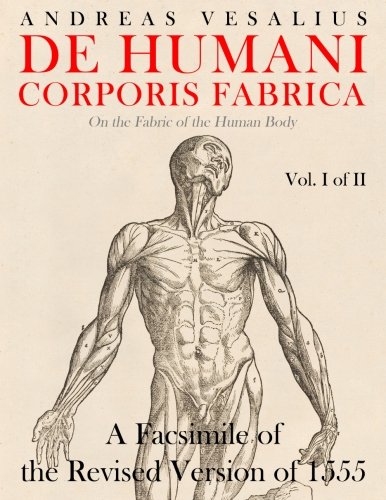
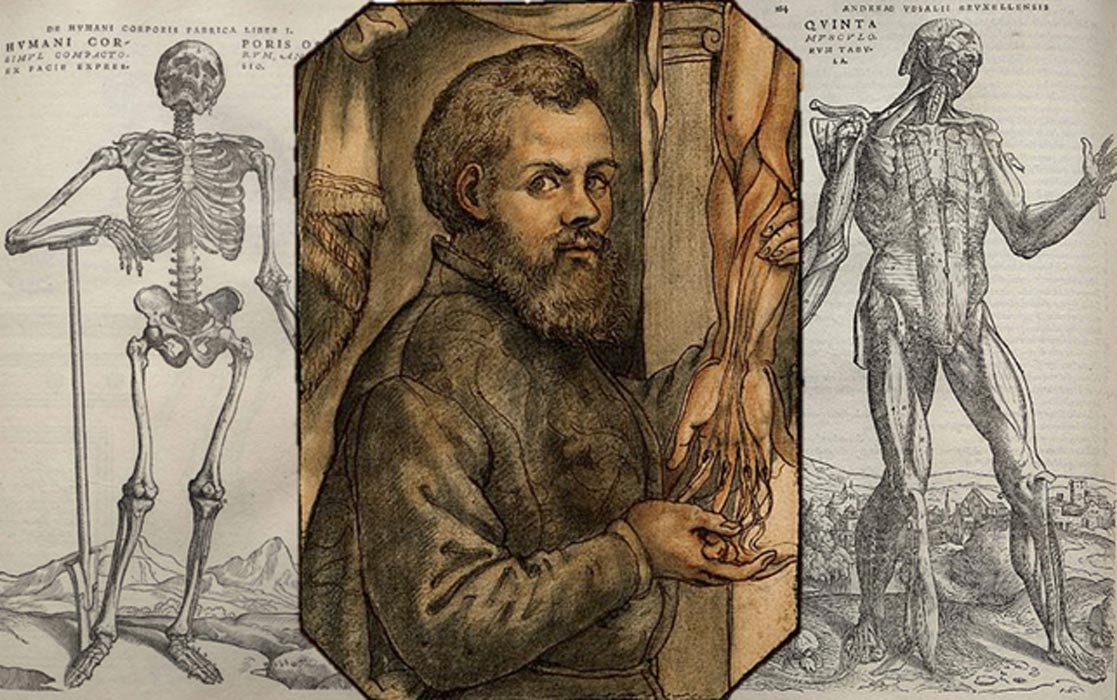
Why is Medical Historiography significant?
As we continuously strive for greatness as a society, specifically in the realms of medical practices, applications, and written history in the Western world, it is important that we acknowledge the change and continuity within the discipline. One author that best sums up the significance of Medical historiography is John Warner in his work entitled Locating Medical History: The Stories and Their Meanings; in which he writes, “The historiography of medicine cannot be studied in isolation from other intellectual and social developments. How historians choose and treat their subject is affected not only by what seems of interest to them, but also by the ways in which others around them write about similar topics” (Warner, pg.115). Essentially, the author is getting his readers to think about who gets to decide what is considered to be universally practical medicine? What we take away from history and what it has to show us both in evidence and methodologies (i.e. the way it is written) is always up for interpretation, and medical historiography is no exception to that. In the realms of medical history, Time, history and medicine go hand in hand and is best described by author and Italian scholar Carlo Marcaccini in his work, Time and Truth in Thucydides when he writes, “Time is a doctor’s friend. Reading treatises, there is no sense that time implicates dispersion, loss, ignorance. Doctors are masters of time; their analysis would not make sense if they could not understand what has been and what will be” (Marcaccini, pg. 222). Medical historiography provides us with narratives of the human past and gives us a better understanding of not only ourselves, but the foundations and practices that have shaped how history is written no matter what type of history one is looking at. We must not forget however, that history always has something to show us in order to give us a better understanding of the world that we currently occupy. It also gives us a view of how the world previously occupied has changed and what those changes has either contributed to us or taken away from us.
Sources
Brazier, Yvette. “Prehistoric Medicine: Research, Disease Prevention, and Medications.” Edited by Daniel Murrell, Medical News Today, MediLexicon International, 1 Nov. 2018, https://www.medicalnewstoday.com/articles/323556.php.
Cartwright, Mark. “Ancient Greek Medicine.” Ancient History Encyclopedia, Ancient History Encyclopedia, 11 Apr. 2018, https://www.ancient.eu/Greek_Medicine/.
Huisman, Frank, and John Harley Warner. Locating Medical History: the Stories and Their Meanings. Baltimore, MD: Johns Hopkins University Press, 2006.
Jouanna, Jacques, and Philip J. van der. Eijk. Greek Medicine from Hippocrates to Galen: Selected Papers. Leiden: Brill, 2012.
Marcaccini, Carlo. “Time and Truth in Thucydides.” www.redalyc.org. Araucaria. Revista Iberoamericana de Filosofía, Política y Humanidades, 2017. https://www.redalyc.org/articulo.oa?id=28250843012.
Smith, Wesley D. “Hippocrates.” Encyclopædia Britannica, Encyclopædia Britannica, Inc., 24 May 2019, https://www.britannica.com/biography/Hippocrates.
Team, Medical News Today Editorial. “Medieval and Renaissance Medicine: Practice and Developments.” Medical News Today. MediLexicon International, October 31, 2018. https://www.medicalnewstoday.com/articles/323533.php.
The Editors of Encyclopaedia Britannica, and Grace Young. “Edwin Smith Papyrus.” Encyclopædia Britannica, Encyclopædia Britannica, Inc., 17 Mar. 2016, https://www.britannica.com/topic/Edwin-Smith-papyrus.
2818 words. /essays/early-modern/modern-medicine.html